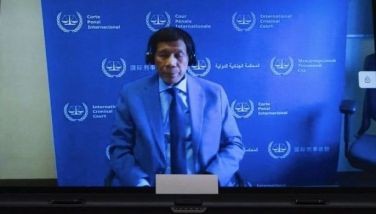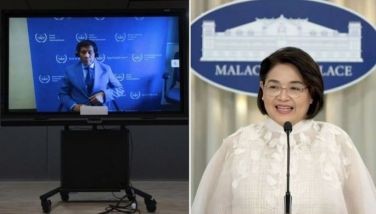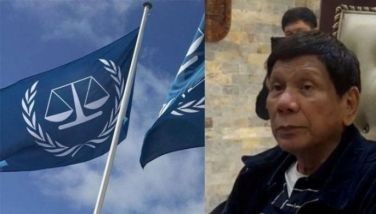More PCG, BFAR vessels to be deployed in West Philippine Sea

MANILA, Philippines — Manila has ordered increased deployment of Philippine Coast Guard (PCG) and Bureau of Fisheries and Aquatic Resources (BFAR) vessels in Panatag (Scarborough) Shoal in the West Philippine Sea, aimed mainly at protecting the country’s interests and fishermen in the area.
National Security Adviser Eduardo Año announced yesterday that such initiatives are being carried out “in line with the vision of ‘Bagong Pilipinas’ in achieving food security as a pivotal element in national development.”
He declared that the Philippine government has taken decisive
action to protect the rights and safety of Filipino fishermen in the waters of Bajo de Masinloc.
Año said the national government has directed the PCG and BFAR to deploy their vessels on rotation in the area starting this month.
He said the PCG vessel BRP Teresa Magbanua (MRRV-9701) recently completed a successful patrol from Feb. 1 to 9 while the BFAR vessel BRP Datu Tamblot (MMOV-3005) has been conducting patrols in the waters of Panatag Shoal since Feb. 14 and continues to do so.
“These efforts aim to ensure the safety and security of our Filipino fishermen in their traditional fishing grounds. Further, both PCG and BFAR were also directed to distribute food packs, groceries and even fuel to support the fishermen in sustaining their activities in the vicinity of Bajo de Masinloc,” Año said.
He stressed that there is no truth to the statement of the China Coast Guard (CCG) that it expelled a BFAR vessel and PCG vessel that allegedly intruded into their waters.
“The National Security Council reaffirms the Philippines’ sovereign rights and jurisdiction over Bajo de Masinloc and its surrounding waters within the Philippine exclusive economic zone. These rights are recognized under international law, including the United Nations Convention on the Law of the Sea and the 2016 Arbitral Award,” Año said.
“It is crucial to emphasize that the activities of the Filipino fishermen and the PCG and BFAR vessels in BDM are fully compliant with national laws and consistent with the Philippines’ position on the West Philippine Sea. Any attempts by state actors to intimidate or drive away our fishermen are clear violations of international law and disregard the decision of the Arbitral Award,” he noted.
Año announced that despite the challenges, the PCG and BFAR vessels will maintain professionalism in dealing with any unlawful and provocative behavior exhibited by CCG and the Chinese maritime militia vessels, including responding to dangerous and blocking maneuvers that blatantly disregard the Convention on the International Regulations for Preventing Collisions at Sea of 1972.
“The National Task Force on the West Philippine Sea reassures the Filipino people that our member agencies are fully dedicated to upholding our commitment to the President and the nation. Through a comprehensive whole-of-government approach, we stand unwavering in our mission to protect our sovereignty and safeguard our national interests in the West Philippine Sea,” he said.
Not an offshoot
The Philippines’ top diplomat disagreed with a “tendency” to present the South China Sea dispute as a result of the rivalry between the United States and China, saying it sets aside the Philippines’ legitimate rights and interests of countries.
In his remarks at the Foreign Correspondents Association of the Philippines media forum on Thursday, Foreign Affairs Secretary Enrique Manalo said subscribing to the prism of US-China rivalry “does not help in an honest understanding of the situation.”
“Firstly, it puts distinct and legitimate rights and interests of countries such as the Philippines aside, and secondary to the interests of the rivals,” Manalo said.
“Secondly, it purposely obscures good judgment: actions that are clearly illegal in international law and against the UN Charter are sometimes rationalized under the pretext of this rivalry,” he added.
The US-China rivalry is highlighted in attempts to disregard legitimate responses to illegal actions.
“As I have emphasized in many previous remarks, the future of the Indo Pacific, resting on abiding peace and resilience in the face of risks, is being shaped not just by one or two powers, but by many actors, each with their agency and legitimate interests and voice,” he added.
Manalo emphasized the Philippines’ role as vanguard of the rule of law, particularly the 1982 UN Convention on the Law of the Sea as the fundamental and only arbiter of the overlapping claims and disputes in the South China Sea, can be seen as an extension of Philippine good global citizenship. — Pia Lee-Brago
- Latest
- Trending
































